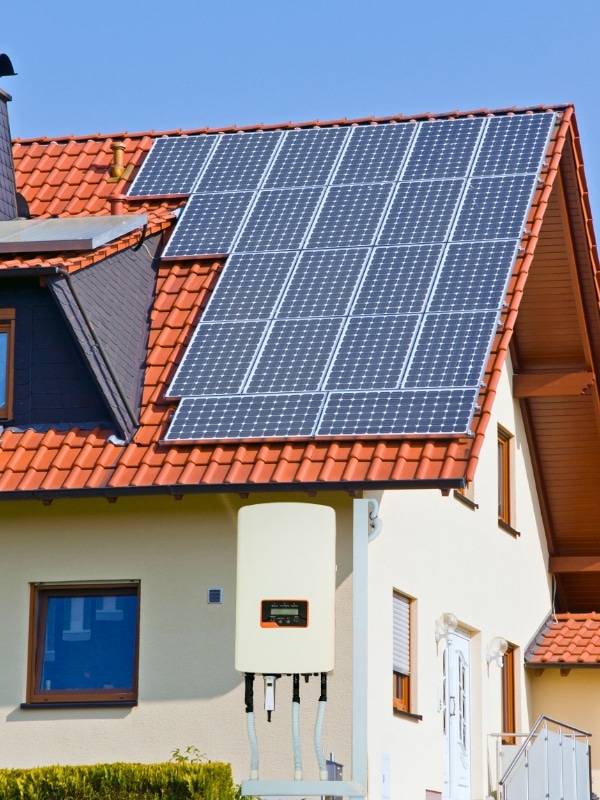Electricity costs in Australia continue to rise, making it more important than ever for households and businesses to find ways to reduce energy expenses. Investing in panels and solar battery storage systems offers an effective solution to achieve long-term solar energy savings and lower electricity bills.
By harnessing the power of the sun and storing excess energy, Australians can gain energy independence and cut down on their reliance on the grid. This guide explores the financial and practical benefits of solar and battery storage, helping you decide to reduce your energy costs today.
Ready to slash your energy bills? Energy Matters is committed to helping Australians transition to cleaner, more affordable energy solutions.
Energy Matters helps Australian home and business owners receive personalised solar quotes through our large network of high-quality solar installers. With Energy Matters, you can be sure you’re getting the best possible deal on solar energy. We only work with reputable solar installers with a proven track record of delivering high-quality solar systems.
Understanding solar energy savings and how they work
Solar panels convert sunlight into electricity, which can then be used to power your home. During peak sunlight, your solar system generates more electricity than you might need. Without solar battery storage, this excess energy is typically fed back into the grid, and you may receive a small feed-in tariff.
However, this excess energy is stored for later use with a solar battery system, maximising your solar energy savings.
How solar energy helps reduce electricity bills
1. Generating free power from the sun
Solar panels generate electricity from sunlight, allowing households to power their homes with free, renewable energy. During daylight hours, solar panels can significantly reduce reliance on grid electricity, leading to substantial solar energy savings.
2. Net metering and feed-in tariffs
If a solar system produces more energy than needed, excess electricity can be fed back into the grid in exchange for credits through Australia’s feed-in tariff programs. This further reduces electricity costs and improves overall savings.
3. Reducing peak hour dependence
Electricity rates are typically higher during peak demand hours. With a well-designed solar system, households can use solar energy daily and store excess energy for later use, minimising reliance on expensive grid electricity.
The role of battery storage in energy savings
While solar panels help lower energy bills, adding battery storage takes savings to the next level by maximising self-sufficiency and reducing dependency on the grid.
1. Storing excess solar energy for later use
Solar battery storage allows businesses and homeowners to store unused solar energy generated during the day and use it at night or during cloudy periods. This ensures a continuous power supply and enhances solar energy savings.
2. Lowering peak demand charges
For households on time-of-use tariffs, battery storage helps avoid drawing power from the grid during peak pricing periods. Instead, stored solar energy is used, leading to significant cost reductions.
3. Providing backup power during outages
Battery storage systems also serve as a backup power source during blackouts. This added reliability ensures uninterrupted power supply while reducing long-term reliance on grid electricity.
Solar battery storage cost benefits: Is it worth the investment?
One of the most common concerns for businesses and homeowners is the upfront cost of solar battery systems. While the initial investment can be substantial, the solar battery storage cost benefits often outweigh the expenses in the long run.
Decreasing battery prices
The cost of solar batteries has steadily decreased due to technological advancements and increased market competition. Government incentives and rebates further enhance affordability.
Long-term savings
With rising electricity prices, battery storage helps businesses and homeowners lock in lower energy costs by storing and utilising their energy. Over time, these savings offset the initial investment, making it a cost-effective solution.
Government incentives and rebates
Several Australian states offer rebates and incentives for solar battery storage installations, reducing out-of-pocket expenses. Programs like the Small-Scale Renewable Energy Scheme (SRES) and state-based solar battery incentives make solar-plus-storage systems more accessible.
Check our page to learn whether solar battery storage is worth the Investment.
Solar and battery payback period: When will you break even?
The payback period for a solar and battery system depends on several factors, including system cost, energy consumption, and government incentives. On average:
- Solar-only systems have a payback period of 3-5 years.
- Solar with battery storage extends the payback period to 7-10 years but provides greater energy security and savings in the long run.
By carefully planning your system size and maximising self-consumption, you can achieve faster returns on your investment.
Choosing the right solar and battery storage system

Factors to consider when selecting a solar system
- System size: Ensure the solar panel system is appropriately sized to meet your household’s energy needs.
- Panel efficiency: High-efficiency panels generate more power, maximising solar energy savings.
- Warranty and durability: Choose panels with long-term warranties and proven performance.
Selecting the best solar battery storage system
- Solar battery capacity: Ensure the solar battery can store enough energy to meet your nighttime and peak-hour needs.
- Lifespan and warranty: Opt for a solar battery with a strong warranty (typically 10 years or more).
- Compatibility with solar panels: Ensure the solar battery is compatible with your existing or planned solar panel system.
How businesses can benefit from solar and battery storage

For businesses, solar and battery storage provide financial and operational advantages:
- Reduced operating costs: Lower electricity expenses improve profitability.
- Sustainability goals: Businesses can reduce their carbon footprint and appeal to environmentally-conscious customers.
- Energy independence: Reduced reliance on the grid ensures uninterrupted operations, even during power outages.
Future of solar and battery storage in Australia
As technology advances and battery prices decline, solar-plus-storage solutions will become even more cost-effective. Increased adoption of electric vehicles (EVs) and smart grid integration will enhance energy management and savings for Australian households and businesses.
Powering up your EV with solar
If you plan to purchase an EV, integrating an EV charger into your solar system is a great way to “fuel” your car with clean, renewable energy.


















